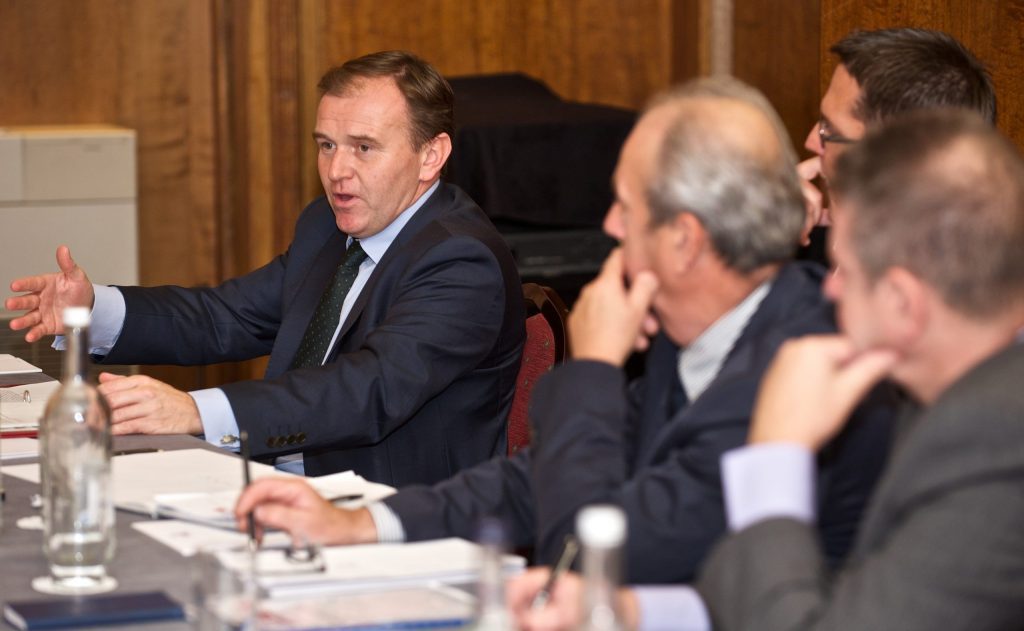Brexit Takes Centre Stage at Fishing Industry Debate
The fishing industry has a once in a generation opportunity for radical change according to UK fisheries minister, George Eustice. Addressing a room full of fishermen, the minister went on to add that Brexit provided a unique chance to go back to first principles when re-establishing fishing policy.
The address took place at the National Federation of Fishermen’s Organisation’s (NFFO) annual general meeting held in London on Thursday (8 September), where fishermen put their questions directly to the minister for the first time since the outcome of the Referendum was announced. These spanned industry involvement in exit negotiations for Brexit, the position on continued funding and how to attract young people into the industry.
During his address, the minister conveyed a strong belief that being outside the EU and therefore outside the CFP would provide “an opportunity to go back to first principles” and design management arrangements that are tailored specifically to UK fleets and fisheries. He contrasted this flexibility with the rigidity of the CFP which has proved incapable of producing the responsive, adaptive, approach required to manage modern, complex and diverse fisheries.
Although the Government’s overall negotiating strategy for leaving the EU is still in gestation, the minister made it clear that leaving the EU would provide opportunities to renegotiate the UK’s quota shares and access arrangements, whilst simultaneously retaining access to European markets on reasonable terms. He also made clear that the UK would be taking the lead in all aspects of the Brexit negotiations, whilst consulting closely with the devolved administrations.
The minister highlighted the elements of the CFP which in his view should “in principle” be retained. These included a commitment to Maximum Sustainable Yield, some form of the landing obligation and outside the EU, where there will still be a need for international agreements, continued cooperation on shared stocks and access rights.
He also expressed the wish to work with the fishing industry to design a better future and invited all those in the industry to submit their ideas on the changes that they would like to see to help set broad principles to guide future policy on UK fisheries.
The NFFO has already met with David Davis, the minister responsible for exiting the EU, in advance of the Cabinet meeting in Checkers which began to formulate the Government’s Brexit negotiating positions. The NFFO has prepared a detailed position paper on the transition to, and shape of, all aspects of the post-Brexit fisheries regime as well as giving oral evidence to a House of Lords committee investigating all fisheries aspects of Brexit. Further to this, the member body is expected to take a leading role in a round-table discussion led by Secretary of State for the Environment and Fisheries, Andrea Leadsom next week.
The NFFO’s chief executive, Barrie Deas, said: “We expect to be closely engaged with DEFRA officials in working on the detail of our exit strategy from the EU. Our internal preparations for that engagement are well advanced, with contributions from all of the Federation’s diverse interests invited, sector by sector, and these will be incorporated into the final document for Department for exiting the EU (Dexeu) and DEFRA.
“The feeling from our Executive and from the AGM was that the NFFO has made a very good start in positioning itself for the Brexit negotiations. The early meeting with David Davis and the scope for working closely with Dexeu and DEFRA provide us with a perhaps unique opportunity. However, this is the start of the process and Brexit negotiations will take a minimum of two years. It will be an ongoing challenge to ensure that fishing remains close to the top of the UK’s negotiating priorities. The Federation is fully engaged in that task.
“The minister’s view that Brexit is an opportunity to go back to first principles is a very welcome. The common fisheries policy has shown itself to inflexible and over-centralised, and Brexit offers the opportunity to design and implement an approach tailored to the contours of our fleets and our fisheries.”
Over the last few decades British fishermen have worked successfully to improve the sustainability of their fishing methods and the health of stocks in the waters they fish. According to statistics released by the International Council for the Exploration of the Sea (ICES) earlier this year, there has been a ‘dramatic reduction in fishing pressure’ across the main commercial stocks.
The majority of commercial fish stocks are now at a level consistent with Maximum Sustainable Yield (MSY) meaning levels are not only sustainable, but will also deliver high, long-term yields without jeopardising the future sustainability of stocks. Between 2006 and 2015, the number of stocks fished at MSY increased from 2 to 36.
For more information and to keep up to date with the NFFO’s involvement in Brexit negotiations visit www.NFFO.org.uk or follow the NFFO on Twitter @NFFO_UK.

